Plants Safe for Cats: 20 to Keep in Your Home
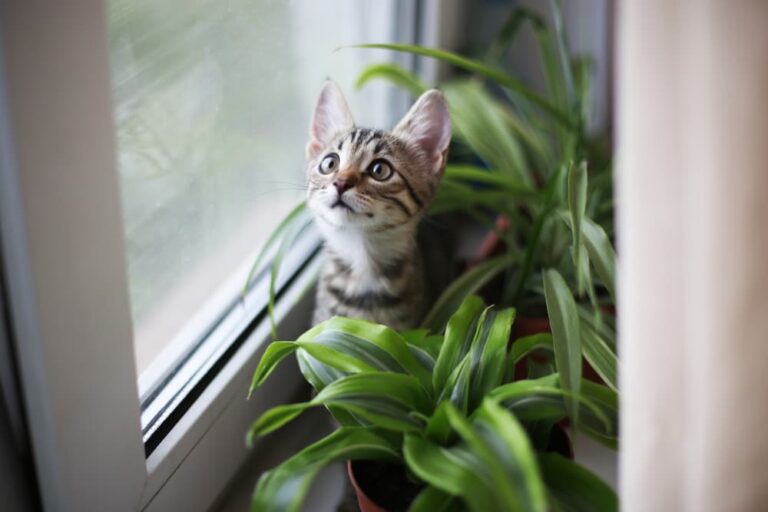
Whether you’ve got a growing family of succulents or an urban jungle in your living room, there are plenty of cat-friendly indoor plants to add to your collection.
But…you know what they say about cats and curiosity, says Dr. Marci L. Koski, certified feline behavior consultant and founder of Feline Behavior Solutions. Many houseplants have characteristics that felines are drawn to—especially if they’re bored. There’s dirt to dig in, wavy leaves to nibble on, enticing smells, and even new tastes, she notes. That’s why it’s important to know which plants are safe for cats and which are toxic before you stock up.
Here’s everything you need to know about cats and plants, including whether or not common houseplants are safe and what to do if your kitty falls ill.
Which Plants Are Safe for Cats? Toxic and Nontoxic Houseplants
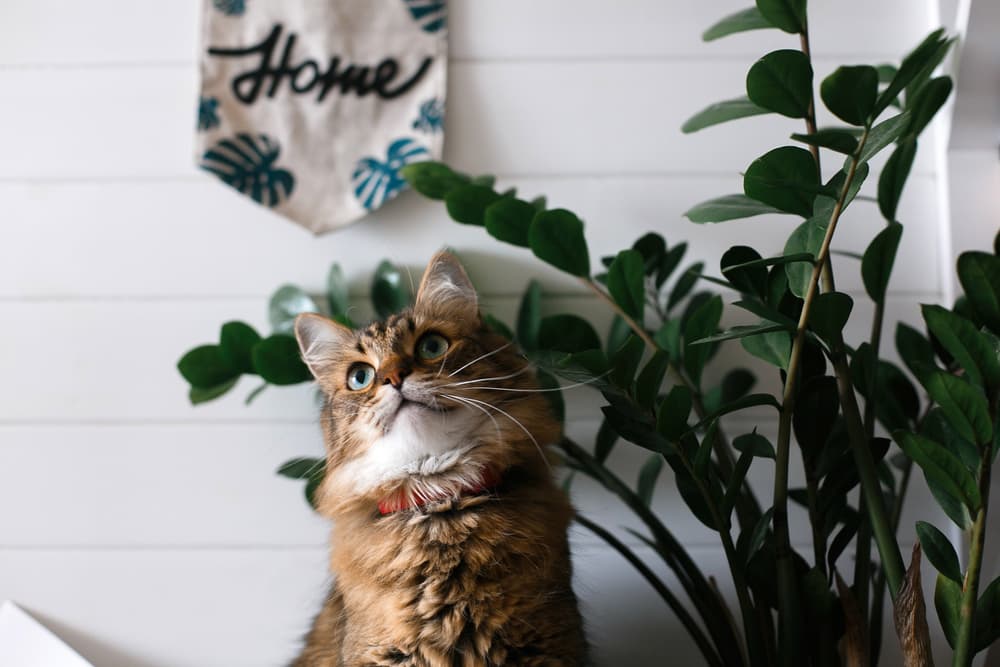
There’s a wide range of plants that can be toxic to cats. Common signs of a possible poisoning include drooling, vomiting, diarrhea, lethargy, or changes in appetite, mood, or eating or drinking habits, says Dr. Heather Graddy, lead veterinarian at Lakewood Veterinary Hospital in Colorado.
While risk of serious illness can be low from some plants if only one or two leaves are eaten, the danger typically goes up the more your cat has ingested, says Dr. Melanie Cohen, a veterinarian and founder of Angel Pet Veterinary Hospice in Hampton Roads, Virginia. Additionally, certain varieties of plants or flowers, like lilies, can also be rapidly life-threatening even with a very minimal exposure.
Here’s what you need to know about which plants are safe for cats.
Are Spider Plants Safe for Cats?
Yes, fortunately spider plants are safe for cats. Easy to care for and ever-propagating new mini-me’s, spider plants are a safe, non-toxic plant for cats.
“Due to the whimsical, ribbon-like nature of the leaves, cats are drawn to playing with and chewing on this plant,” says Brooke Blocker, a proud cat mom to a 17-year-old little lady and owner of Outside In, an online houseplant shop.
However, they’re definitely not cat food, so it’s best to keep your little ones away from them if they’re prone to nibbling.
Are Snake Plants Safe for Cats?
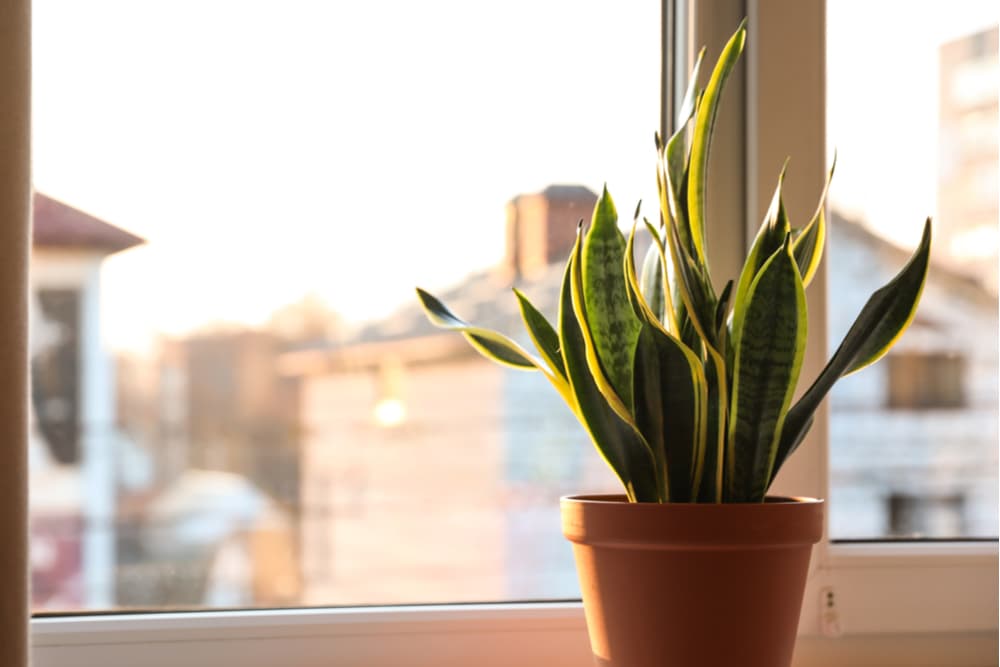
These spiky, bright green plants are famously indestructible. But unfortunately, they’re not cat-friendly due to their saponins, natural compounds that are toxic to cats and dogs alike and can cause vomiting and diarrhea, notes Blocker.
Are Corn Plants Safe for Cats?
Another plant whose leaves contain saponins, corn plants are on the ‘no’ list for cats since ingesting them can cause gastrointestinal distress, says Blocker. At the very least, you’ll want to keep their leaves out of reach.
Are Eucalyptus Plants Safe for Cats?
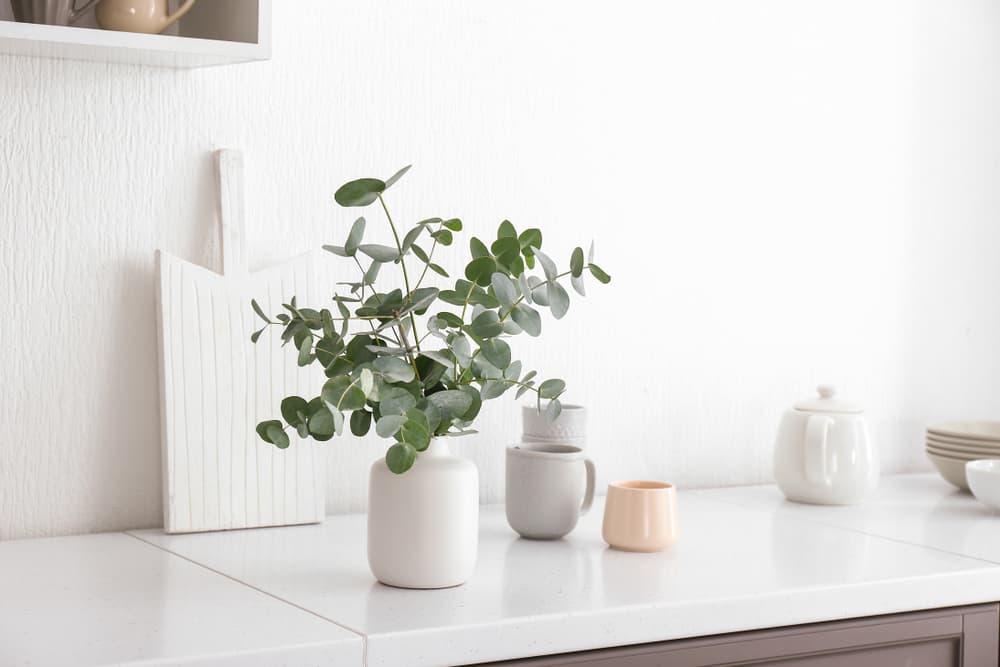
While eucalyptus trees and their essential oils are famous for their healing properties for humans, they’re toxic to felines. “Eucalyptus leaves contain oils of eucalyptol which cats are unable to metabolize properly when ingested,” explains Blocker.
Signs of poisoning include drooling, vomiting, diarrhea, low mood, and weakness, per the ASPCA.
Are Lavender Plants Safe for Cats?
Like eucalyptus, lavender is also off-limits to cats since it contains the oils linalool and linalyl acetate, which are toxic to cats as well as dogs and horses.
Signs of a kitty in distress include nausea, vomiting, and lack of appetite.
Are Aloe Plants Safe for Cats?
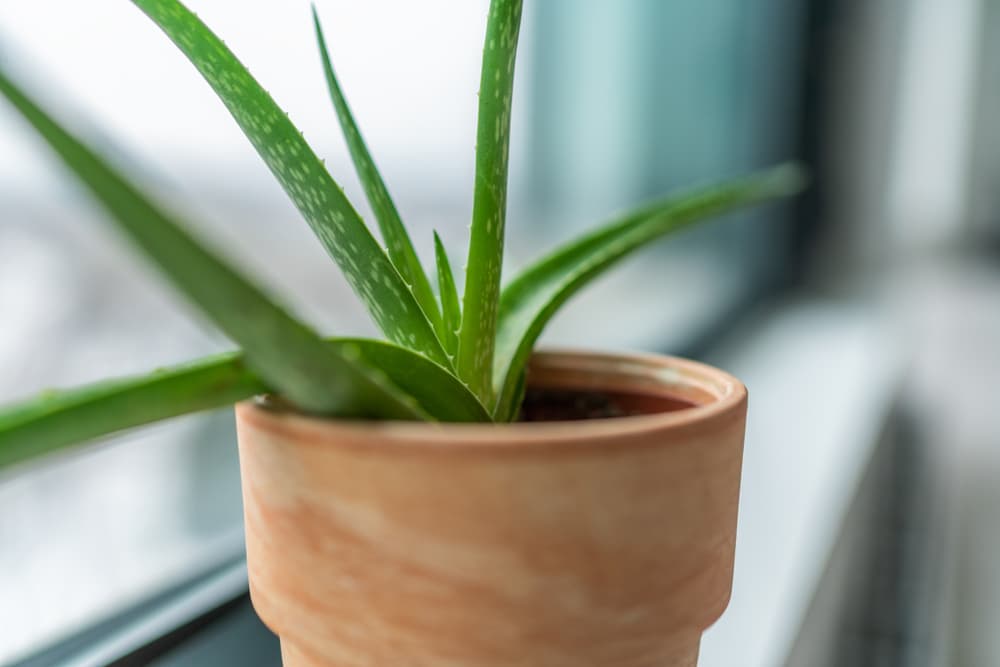
With a cooling gel that serves as the go-to home remedy for sunburn, aloe vera plants are another good-for-you, bad-for-your-cat houseplant.
That’s thanks to their anthraquinones, substances that juice up the digestive tract, triggering vomiting and diarrhea as well as low mood and, in rare cases, tremors in cats, per the Pet Poison Helpline (PPH).
Are Rubber Plants Safe for Cats?
Rubber plants such as jade trees, baby jade, and Chinese and Japanese rubber plants are all toxic to cats. Their sap can irritate a kitty’s skin, mouth, and GI tract.
Signs of trouble include skin irritation, low appetite, drooling, vomiting, and diarrhea, per the PPH.
Is Devil’s Ivy Safe for Cats?
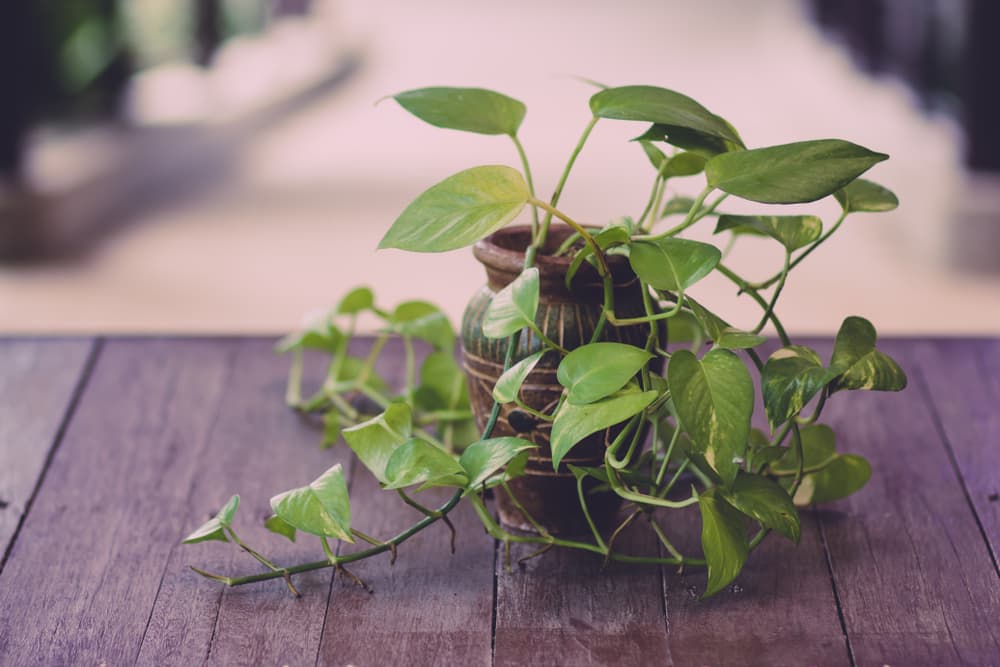
Nope. These fast-growing houseplants contain calcium oxalate crystals, a toxic-to-cats substance that can cause excessive drooling, pawing at the mouth due to pain and irritation, and vomiting, says Dr. Cohen.
Are Monstera Plants Safe for Cats?
With their gorgeous leaves and stunning height, Monstera plants are a staple of Instagram-worthy spaces, but they also don’t get along well with cats due to calcium oxalate crystals.
Are Prayer Plants Safe for Cats?
Yes! If you still want a leafy, tropical look, snag some prayer plants which are non-toxic to cats. “Luckily, there are many types of prayer plants available, so you can relax and load up on this family of feline-friendly plants,” says Blocker.
Houseplants Poisonous to Cats

Besides those that have already been mentioned, there are a handful of other plants toxic to cats.
Hands down, the most toxic plant found in many homes is the lily. In fact, Dr. Cohen says she refuses to allow any type of lily in her home because even the pollen or water in the vase or pot could make cats seriously ill.
True lilies—Asiatic, Day, Tiger, Easter, Japanese, and Oriental—can cause severe kidney damage. “Imposter” lilies like Calla, Peace, Water, and Peruvian lilies aren’t as dangerous, but they can still cause mouth, throat, and GI irritation, notes Dr. Cohen.
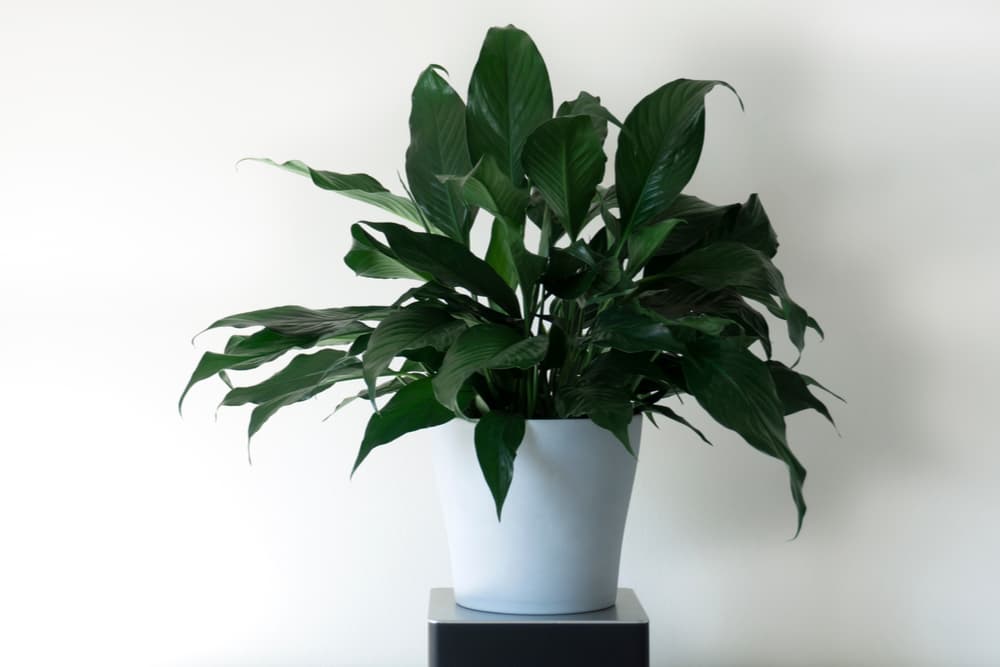
If you suspect your cat may have gotten into your lilies, seek veterinary help immediately.
The following houseplants are also toxic to cats:
- Alocasia
- Amaryllis
- American and English Holly
- Asparagus Fern
- Autumn crocus
- Azalea or rhododendron
- Begonia
- Chrysanthemum
- Cyclamen
- Dieffenbachia
- Kalanchoe
- Oleander
- Peace lily
- Pothos
- Sago palm
- Schefflera
- Tulip and Hyacinth bulbs
- Yew
Wondering about another type of houseplant? Use the ASPCA Animal Poison Control Center search tool to find out if it’s okay to have around kitties.
Plants Safe for Cats
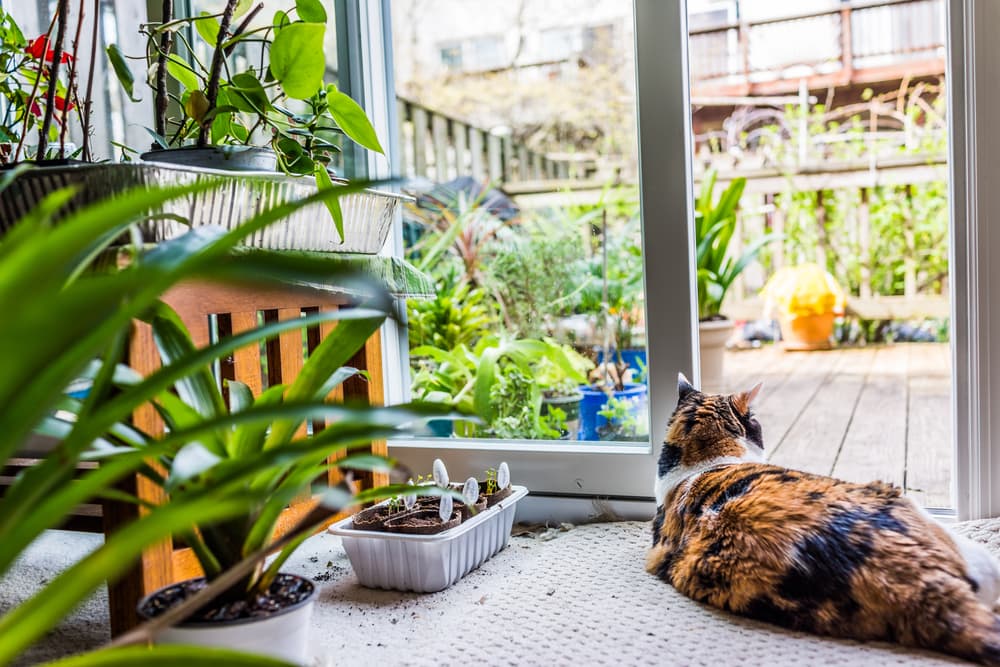
Although some plants might be best left out of your cart, there are plenty of others that are cat-friendly.
“I recommend Peperomia plants to everyone who has a cat,” says Blocker. “There are so many different varieties that there’s always one that will suit any personal plant preference.”
Here’s a selection of other cat-safe plants:
- African Violet
- Baby Tears
- Bird’s Nest Fern
- Boston Fern
- Bromeliad
- Butterfly Palm
- Calathea Orbifolia
- Friendship Plant
- Hoya
- Orchid
- Parlor Palm
- Polka Dot Plant
- Ponytail Palm
- Staghorn Fern
- Swedish Ivy
- Some succulents such as Echeveria and Haworthia
- Venus Flytrap
Cats and Plants: Safety Tips to Follow

So, how can your cats and plants peacefully (and safely) coexist? “When in doubt, keep toxic plants out,” says Dr. Koski. Again, a no-entry rule for lilies is best since they’re especially toxic for cats.
Otherwise, think like a cat and consider your pets’ distinct personalities as you arrange houseplants in your space. High shelves, terrariums or empty fish tanks, and even bird cages can help keep plants and cats separate, says Dr. Koski.
However, if you’ve got a jumper, digger, or muncher, reserve a cat-free room for toxic plants or leave them out of your home entirely. Keep in mind that some plants like cacti are also best kept out of reach since they can injure little paws, says Dr. Graddy. Finally, remember the signs of a possible poisoning, such as drooling, vomiting, diarrhea, and out-of-the-ordinary changes in behavior. Just in case, keep the numbers for the ASPCA’s Animal Poison Control Center (1-888-426-4435) and the Pet Poison Helpline (1-855-764-7661) handy. While there are fees associated with these services, it’s a small price to pay to make sure your kitty’s safe, says Dr. Koski.









